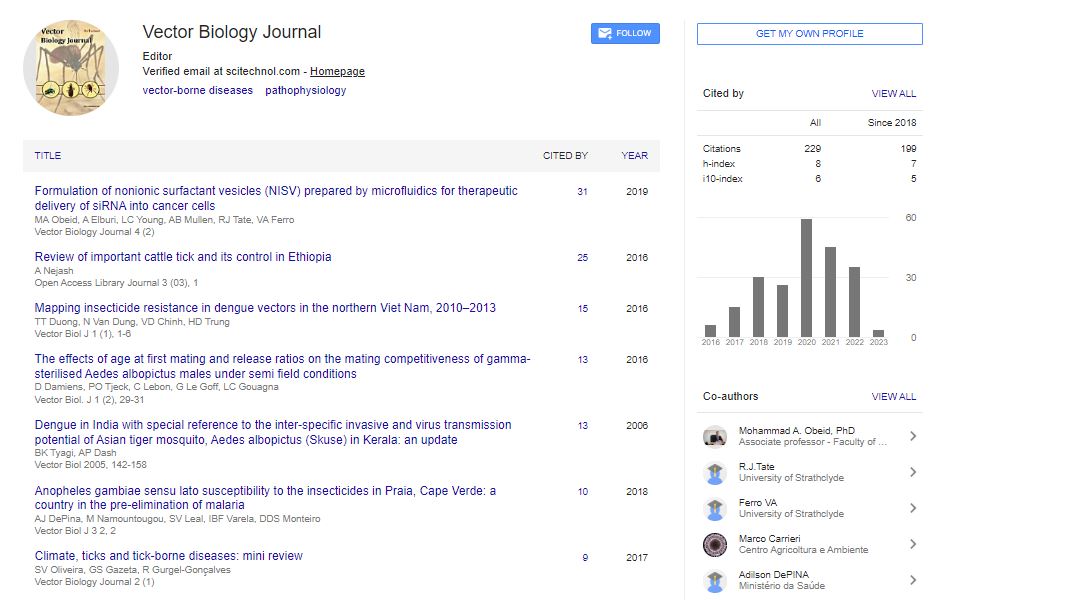How Paraburkholderia phytofirmans strain PsJN helps grapevine to face both biotic and abiotic stresses?
Essaid AIT Barka, Stephane Compant, Andreas Theocharis, Fan SU, Lidiane Miotto-Villanova, Qassim Esmaeel, Sandrine, Dhondt-Cordelier, Lisa Sanchez, Nathalie Vaillant-Gaveau and Christophe Clement
University of Reims Champagne-Ardenne, France
: Vector Biol J
Abstract
In the current context, plant/crop protection is a delicate issue since it is imperative to preserve the environment and to face the climate change. Viticulture is a special case owing to the number of fungicide treatments required to get healthy berries at vintage. Using the soil bacterium Paraburkholderia phytofirmans strain PsJN as an endophyte of grapevine results in plant protection against both biotic and abiotic stresses. The bacterium perceives the plant root in the soil then colonizes its surface and finally penetrates the roots and reaches the vascular bundles. Afterwards, the bacterium diffuses through the xylem in the whole plant organs, including flowers and berries. The presence of the bacterium in the whole plant provides some protection against biotic and abiotic stresses. Plant response was followed after Botrytis cinerea inoculation. In bacterized plants, the stimulation of plant defence genes was faster and stronger than in the control plants, which leads to plant protection against grey mould, without using neither pesticide nor the GMO technology. Similarly, when the plant is confronted to abiotic stresses such as temperature variations, the presence of Paraburkholderia phytofirmans strain PsJN results in the maintenance of plant physiology (i.e. photosynthesis) at the same level when compared to plant grown at standard temperature. Here again, plant reaction is faster and stronger in bacterized plants than in control plants. Altogether, these results strongly suggest that endophytic micro-organisms may be used to develop sustainable technologies of plant/crop protection in the future. It is now necessary to transfer these results from the lab to the field.
Biography
E-mail: c.clement@plen.ku.dk
 Spanish
Spanish  Chinese
Chinese  Russian
Russian  German
German  French
French  Japanese
Japanese  Portuguese
Portuguese  Hindi
Hindi 